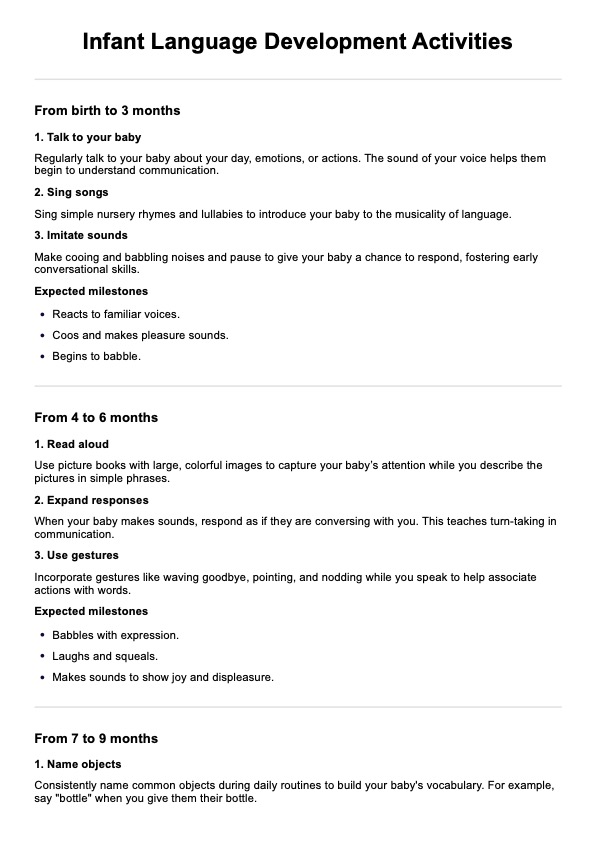Language skills in infants can be developed through regular interaction, such as talking, reading, and singing to them, which exposes them to various sounds, facial expressions, and words.

Infant Language Development Activities Handout
Our free Infant Language Development Activities Handout, featuring key activities and milestones, will help you discover effective ways to enhance infant language development. Download now!
Infant Language Development Activities Handout Template
Commonly asked questions
Consistent exposure to language through social interaction and auditory stimuli is crucial for an infant's language development, as the baby language development helps them understand and eventually replicate speech and communication patterns.
One effective way to encourage and support infants' language development is through responsive communication—listening to their sounds and responding appropriately, encouraging more vocalization and interaction from the infant.
EHR and practice management software
Get started for free
*No credit card required
Free
$0/usd
Unlimited clients
Telehealth
1GB of storage
Client portal text
Automated billing and online payments











